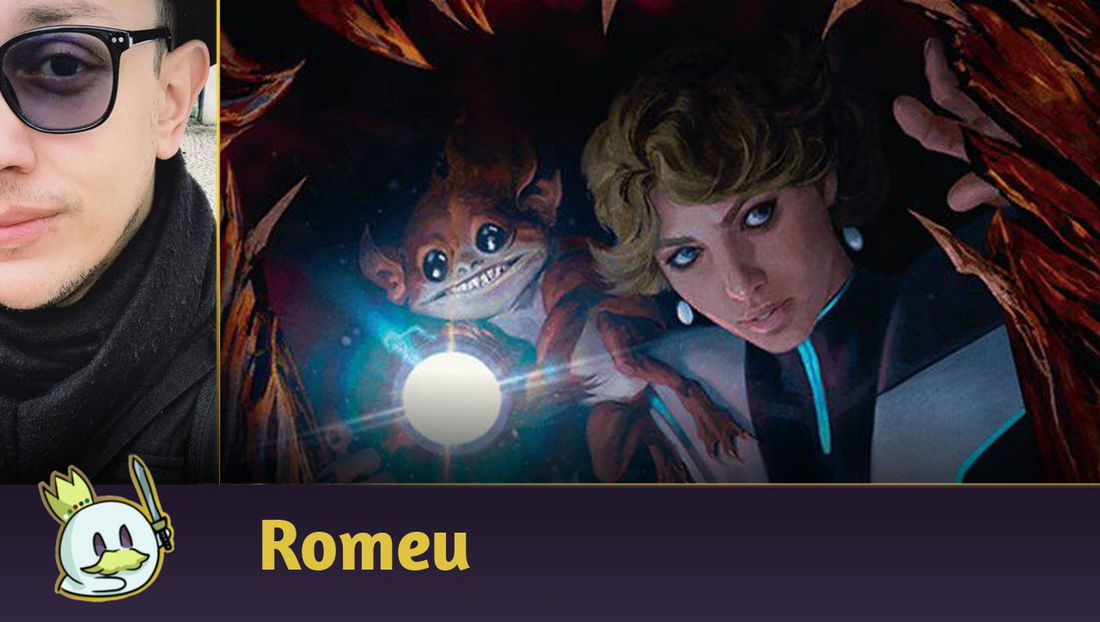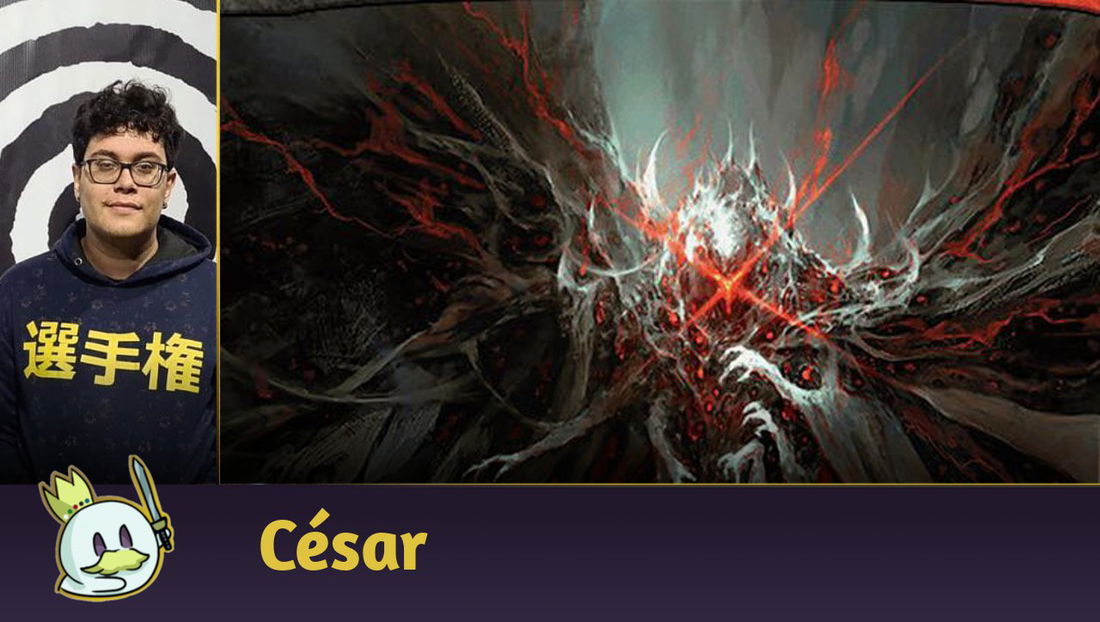Free Spells are a historic and essential part of Magic: The Gathering. Full of controversy and with the largest amount of problematic cards in the game, the addition of alternative costs always presents a threshold between danger and innovation.
Cycles like Evokers from Modern Horizons 2 have easily become essential pieces of the eternal competitive formats, while others, like Flares from Modern Horizons 3, have yet to prove their potential and demonstrate how changing the resource to be paid and creating new clauses can, indeed, create effects that do not require immediate bans.
Ad
Among many design mistakes and controversial situations surrounding them, Free Spells are also composed of some of the most famous cards in the game, and in this article, we rank the fifteen best of them in the history of Magic!
The Best Free Spells in MTG
Ranking Criteria
The ranking below was built based on the following factors:
 , so Black Lotus, Moxen, Lotus Petal and other free mana rocks, as well as Mishra’s Bauble and Pacts, were not included.
, so Black Lotus, Moxen, Lotus Petal and other free mana rocks, as well as Mishra’s Bauble and Pacts, were not included.Honorable Mention: Commander’s Free Spells

All of Commander 2020’s free spells are staples of the format due to the ease of paying their alternative cost: just have your Commander in play, and you can use its effects without any concessions, and except for Obscuring Haze, it is common to find all the cards from the cycle in lists with the highest power level of the format.
However, outside of Commander, none of them are considered free spells because we can't pay their alternative costs. Therefore, they don't make it into our rankings.
15 - Force of Despair

Force of Despair can be a spot removal or even a sweeper, depending on when you cast it and the game you're playing. Against decks like Nadu, Winged Wisdom, it's usually a powerful and often unavoidable wipe since it bypasses protections, while in other games, it can deal with Emrakul, the Aeons' Torn or any other huge permanent put into play by the opponent.
But there are situations where it doesn't do anything, or we draw it too late to deal with the current problem, making it a bad topdeck. Therefore, it occupies the last place in our Top 15.
14 - Misdirection

Misdirection requires the same alternative cost as the Elementals from MH2, but came out decades earlier as a new proposal for Force of Will, where it trades a life point for the limitation of the scope of responses that the spell guarantees, being useful as a backup to protect combos of Counterspells and/or creatures from removal, but not having enough scope to be an instant staple.
Ad
13 - Subtlety

Subtlety is the blue elemental from the most famous free spells cycle in Magic: The Gathering, the Evokers from Modern Horizons 2 that had an absurd impact on the entire competitive chain of eternal formats.
Of these, Subtlety is the most conditional and the least effective when it comes to entering multiple decks because its scope is very limited, and it doesn't permanently address the problem, being a useful tempo play that, as the game goes on, can also become a threat.
12 - Daze

Daze is a simple free spell that works as a Tempo play: you play a land back to your hand in exchange for forcing your opponent to pay more for their spells, often forcing them to play around it for another turn while you establish more pressure, and being enhanced by cards like Wasteland or Stifle, which limit access to mana.
11 - Snuff Out

Four life to destroy a creature is a very negligible cost when so many threats demand immediate answer, turning Snuff Out into a Pauper staple with occasional appearances in Legacy for a few years, where it starred and established Death’s Shadow lists in the format in 2018.
10 - Solitude

Swords to Plowshares is considered one of the best removals in Magic history, and Solitude offers the same effect and a 3/2 body with evasion and Lifelink for five mana, but with the option to exile a card from hand to get its effect for free, and can be a decent threat as the game goes on.
As if that weren’t enough, because it interacts with the battlefield, Solitude is one of the most useful cards to blink with Ephemerate or return from the graveyard with Not Dead After All to offer efficient trades and still stay in play, despite having paid its alternative cost.
9 - Endurance

Endurance is one of the best answers to graveyard hate in creature form that Magic has ever had, it can be cast on the opponent's turn at the time of a combo and/or in the right phase to avoid a Murktide Regent or another card too early. It also has a very acceptable cost for 
8 - Force of Negation

Force of Negation is another take on Force of Will that aims to avoid the opponent's combo while it can't be used to protect your spells. This didn't stop the card from becoming a staple in Modern and Legacy and one of the most desired spells for Timeless due to the unfair nature of its Metagame, and its 
7 - Force of Vigor

Force of Vigor is a Sideboard staple, but perhaps the most efficient of the free spells in this slot. After all, it offers a two-for-two trade against any artifact or enchantment and without any additional concessions, allowing players to deal with hate and/or troublesome permanents while investing their mana in more proactive plays.
Ad
6 - Fury

If Force of Vigor offers a fair two-for-two trade, Fury can offer up to four of your opponent's creatures in exchange for a red card from your hand.
Its presence limits the space that Aggro decks and/or archetypes with creature-based interactions have in a competitive Metagame when there are no ways to combat it with more efficient trades, forcing its ban in Modern when players started using Feign Death and Not Dead After All to double their effects and still leave a 4/4 with Double Strike on the board as early as the first turn in a strategy that became known as Scam due to the “cheating” nature of the deck's alternative costs.
5 - Gitaxian Probe

Information is one of the most important resources that exist in a Magic game. Being aware of your opponent's plans to play around them is a strategic benefit that is often undervalued, but often makes or breaks a player's victory. Gitaxian Probe offers this, for free, and with the mere concession of paying two life, allowing you to better set up a combo, interact with other key cards on your list and/or in your opponent's hand, and even benefit from a draw, replacing it in its controller's hand.
4 - Grief

The "cheating nature" of Scam decks goes far beyond having a 4/4 with Double Strike on the board: Grief is an Unmask in creature form whose interaction with its ETB and/or Reanimate effects allows taking the two main resources from your opponent and obtain all of their information as early as the first turn.
Without this interaction, Grief is still a strong card whose trades tends to be positive for its controller, and a 3/2 body for four mana that removes a key card from the opponent's hand is also quite useful on its own.
3 - Mental Misstep

Mental Misstep is the type of spell with a very limited scope, but which easily defines formats for what it does: countering any spell with a mana value of one limits the space of one of the most important turns in the eternal formats. As if that weren't enough, its alternative cost is limited to paying two life, allowing it to enter any deck, which quickly turned it into one of the most played cards in Legacy until its ban and led to a preemptive ban on Modern.
2 - Gush

Gush is a controversial and notoriously powerful card for its potential to draw two cards, but its alternative cost of returning Islands to the hand is used in situations where players generate mana with them, use the spell to return them to the hand and reuse the land drop to play one of them, “generating” a free mana.
The impact of this spell was felt in the first decade of Magic and led to its ban in Legacy and restriction in Vintage. In Pauper, Gush remained in the format for years and was a staple of Delver of Secrets decks to the point where interactions with Brainstorm, Evolving Wilds and Ash Barrens grew in the Metagame. The downshift of Foil was a bit too much for the format, and Gush was eventually banned with Daze and Gitaxian Probe.
Ad
1 - Force of Will

All the spells in the list above have one thing in common: Force of Will helps keep them in check. Considered the most traditional fun police in Magic, Alliances' counterspell quickly became the main pillar that supports all formats where it is legal and prevents degenerate and/or too fast archetypes from doing their thing unhindered.
Force of Will is also responsible for supporting some of the main historical archetypes of Legacy and Vintage and protecting combos and creating resource exchanges that are, in most cases, unfavorable for its controller, but necessary for the development of the game, being one of the most elegant designs of MTG's first decade.
Conclusion
That's all for today!
If you have any questions or suggestions, feel free to leave a comment!
Thanks for reading!









— Kommentare0
Sei der erste der kommentiert